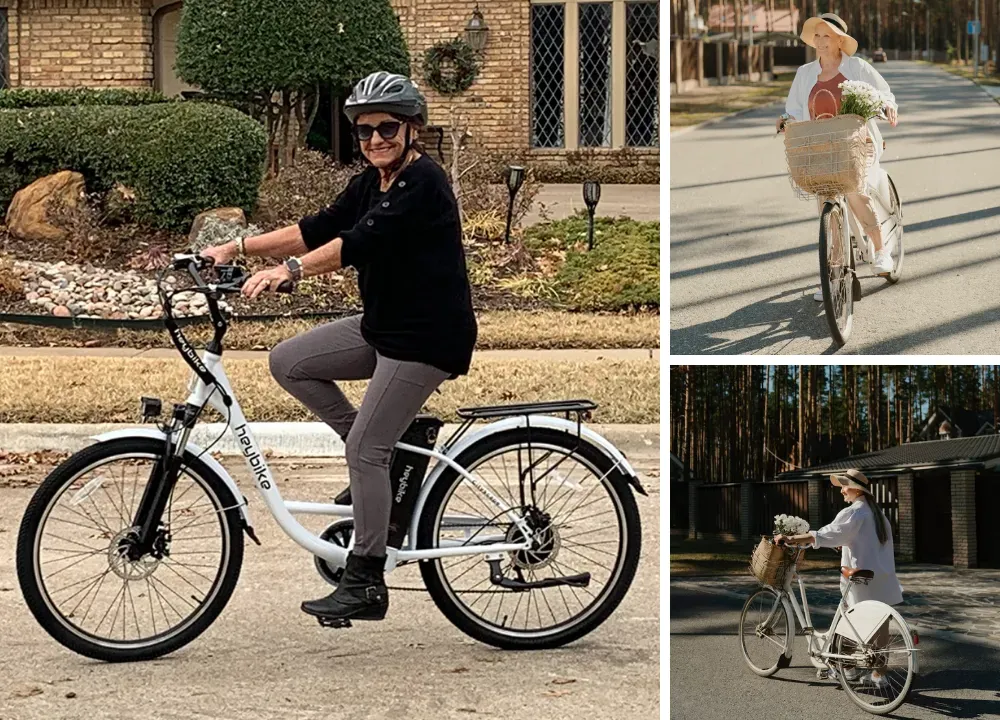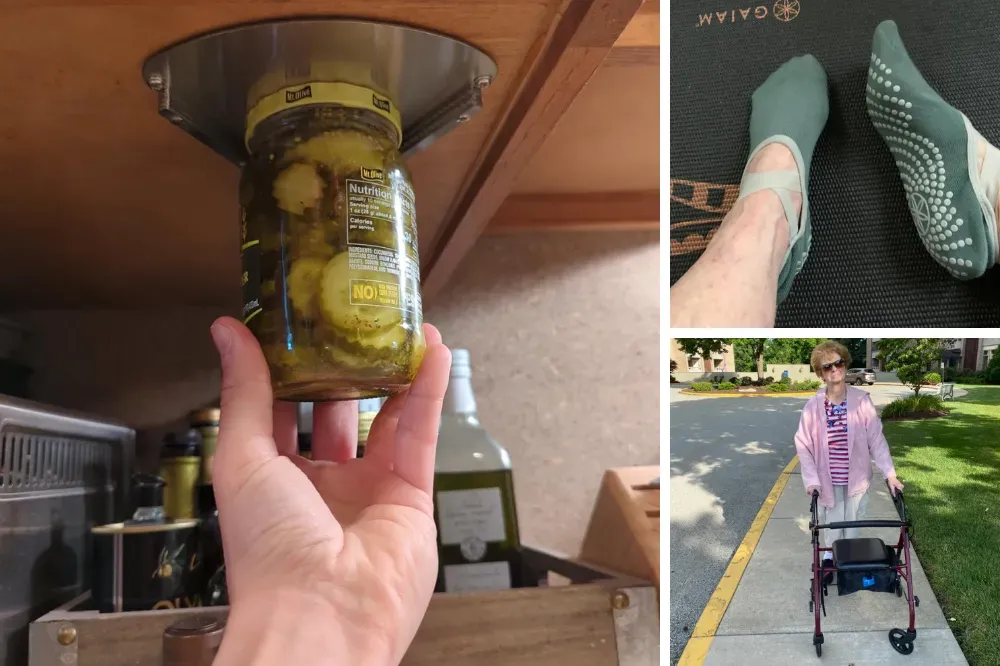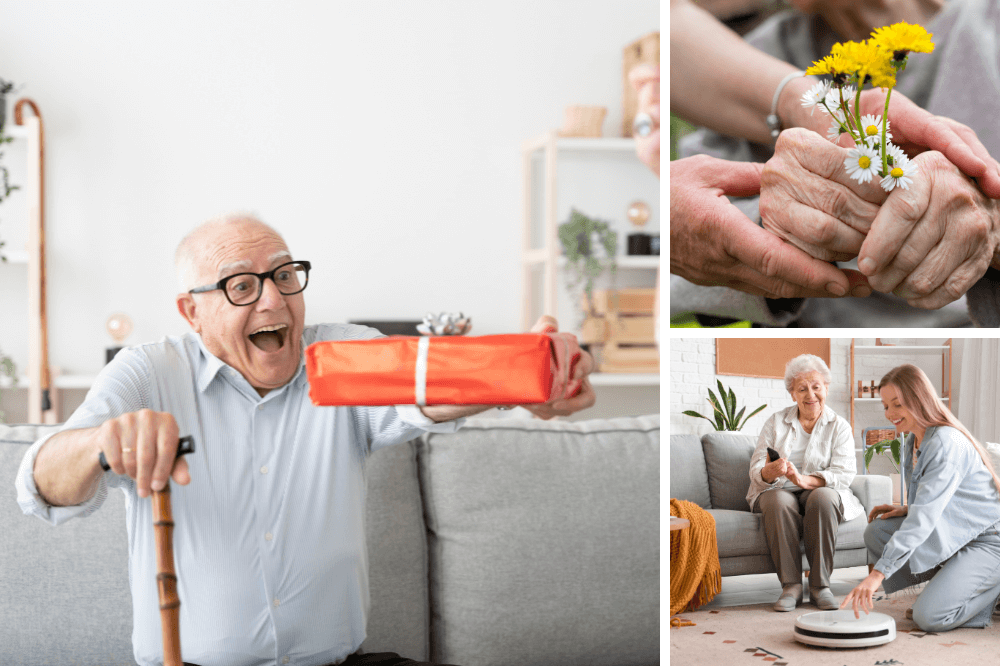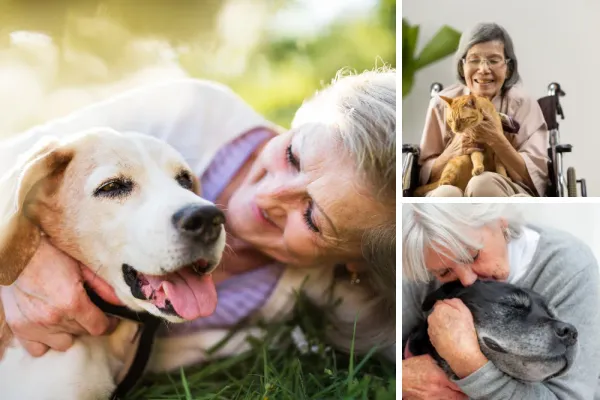As we age, maintaining mental and emotional well-being becomes increasingly important. For many seniors, effective self-care strategies can enhance overall health, improve quality of life, and promote a sense of fulfillment during their senior years. This article explores various self-care practices, focusing on relaxation techniques, meditation, and self-reflection to support mental and emotional health. Additionally, we provide self-care tips tailored to seniors' needs, emphasizing the importance of establishing healthy habits and social connections.

Understanding Self-Care for Seniors
Importance of Self-Care
Self-care involves activities that promote physical, mental, and emotional health. For seniors, practicing self-care is incredibly important as it helps manage stress, improve mood, and maintain overall wellness. By prioritizing self-care, older adults can enjoy a healthier, more active retirement.
Physical and Mental Health
Physical health and mental health are deeply interconnected. Establishing healthy habits such as regular physical activity, maintaining a healthy diet, and getting adequate sleep are foundational elements of a self-care routine that supports both physical and mental well-being.
Relaxation Techniques for Mental Well-Being
Deep Breathing Exercises
Deep breathing exercises are a simple yet effective way to reduce stress and promote relaxation. By focusing on your breath, you can lower blood pressure and alleviate muscle tension, contributing to overall health and promoting health.
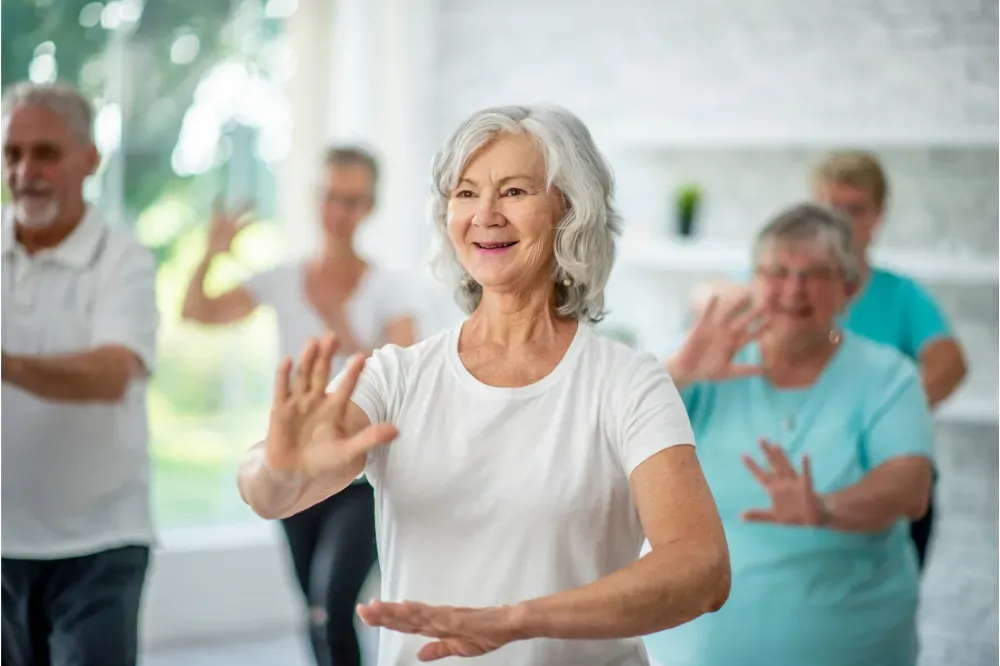
Tai Chi
Tai Chi, a form of gentle exercise combining movement and meditation, is particularly beneficial for older adults. It helps reduce stress, improve balance, and enhance cognitive function.
Bubble Baths
Taking a warm bubble bath can be a relaxing self-care activity. It helps soothe muscle tension and provides a calming environment to unwind and reflect.

Meditation Practices
Mindfulness Meditation
Mindfulness meditation involves focusing on the present moment, which can help reduce feelings of anxiety and improve emotional health. This practice supports mental well-being by fostering a positive outlook and greater self-awareness.
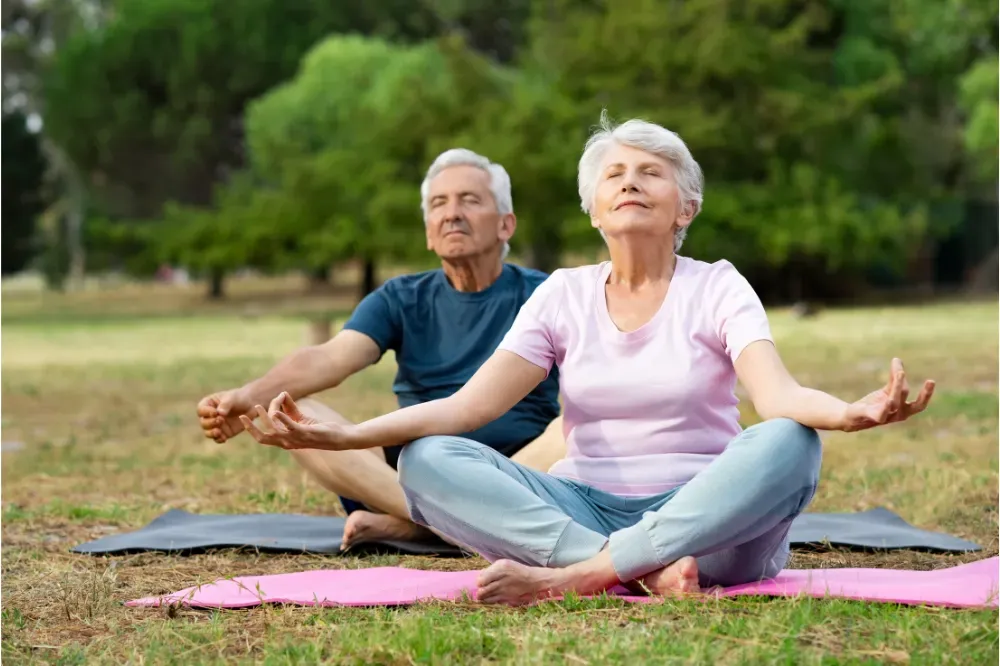
Guided Meditation
Guided meditation uses spoken words to lead you through a meditation session. It's a valuable resource for seniors looking to manage stress and improve mental health.
Breathing Techniques
Specific breathing techniques, such as the 4-7-8 method, can promote relaxation and help seniors fall asleep more easily. This practice contributes to a good night's sleep, which is essential for overall health. Ensuring enough sleep is crucial as it helps prevent negative physical and mental health outcomes, such as irritability, brain fog, and weakened immunity.
Self-Reflection Practices
Journaling
Journaling allows seniors to express their thoughts and feelings, aiding in self-reflection and emotional processing. Writing about experiences can improve mental well-being and provide clarity on various life aspects.

Spending Time in Nature
Spending time outdoors in a small garden or park can be a refreshing self-care activity. Fresh air and nature help reduce stress and improve mood. Among the essential care tips for seniors, spending time in nature is highly recommended to maintain a healthy mind and body.
Engaging in Old Hobbies
Reconnecting with old hobbies, such as playing a musical instrument or painting, can provide joy and a sense of purpose. These activities promote mental well-being and offer a fulfilling way to spend free time.

Healthy Eating and Nutrition
Well-Balanced Diet
A well-balanced diet rich in whole foods, lean proteins, and healthy fats supports overall health and mental well-being. Consuming nutritious meals can help maintain energy levels and improve cognitive function. Prioritizing a balanced diet is essential for caregivers to support their own health, as it can alleviate stress and enhance their ability to care for others.

Hydration
Drinking plenty of water is crucial for maintaining physical and mental health. Proper hydration supports various bodily functions and helps manage stress levels.
Healthy Foods
Incorporating healthy foods like fruits, vegetables, and whole grains into your diet can boost immune system function and reduce the risk of chronic health conditions.
Social Connections and Support
Family and Friends
Spending quality time with family members and friends is essential for emotional well-being. Social connections provide support, reduce feelings of loneliness, and enhance overall wellness.
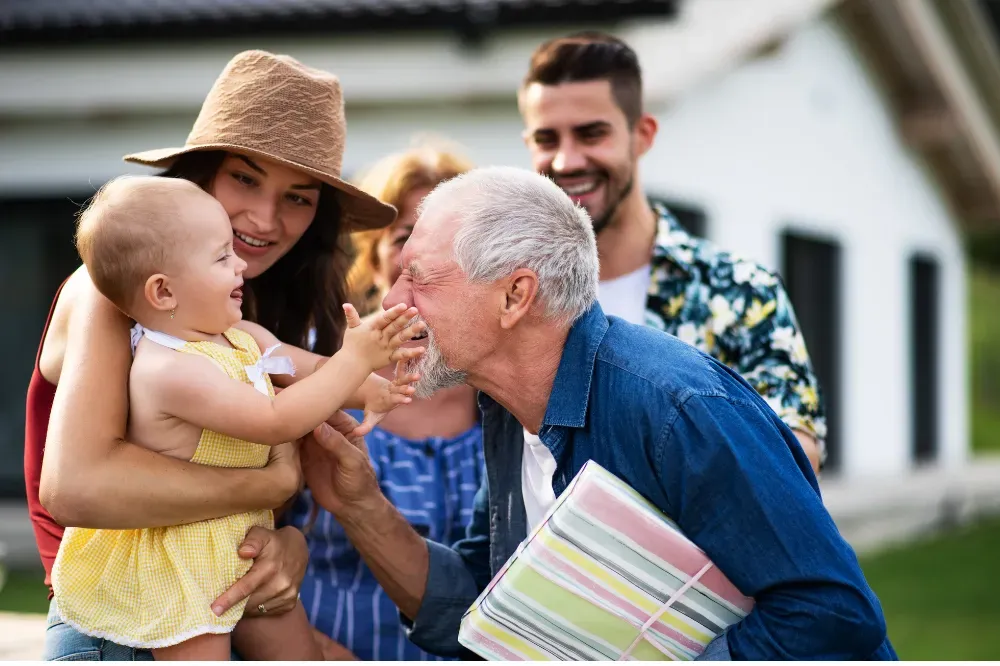
Support Groups
Joining support groups allows seniors to share experiences and receive emotional support from peers. These groups are beneficial for managing mental health issues, promoting a sense of community, and prioritizing their own well-being.
Community Activities
Participating in community activities, such as a book club or social events, fosters social interaction and provides opportunities to make new friends. These activities contribute to a fulfilling and active retirement.

Physical Activity and Exercise
Regular Exercise
Regular exercise, such as walking or aerobic activities, is vital for maintaining physical health and mental well-being. Exercise helps reduce stress, improve mood, and support overall health.
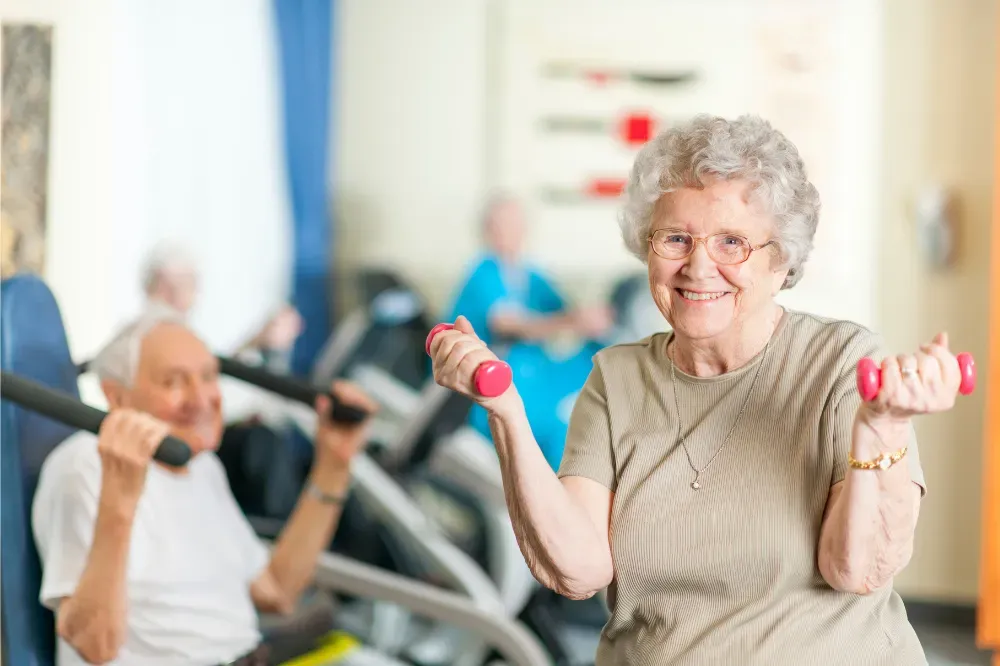
Yoga and Stretching
Practicing yoga or stretching exercises can enhance flexibility, reduce muscle tension, and promote relaxation. These activities are excellent additions to a self-care routine.
Physical Activities
Engaging in physical activities, like gardening or dancing, provides numerous benefits for both physical and mental health. Staying active helps manage chronic health conditions and promotes a positive outlook on life.
Adequate Sleep
Importance of Sleep
Adequate sleep is essential for maintaining mental and physical health. Sleep problems can affect overall wellness, making it crucial to establish a healthy sleep routine.
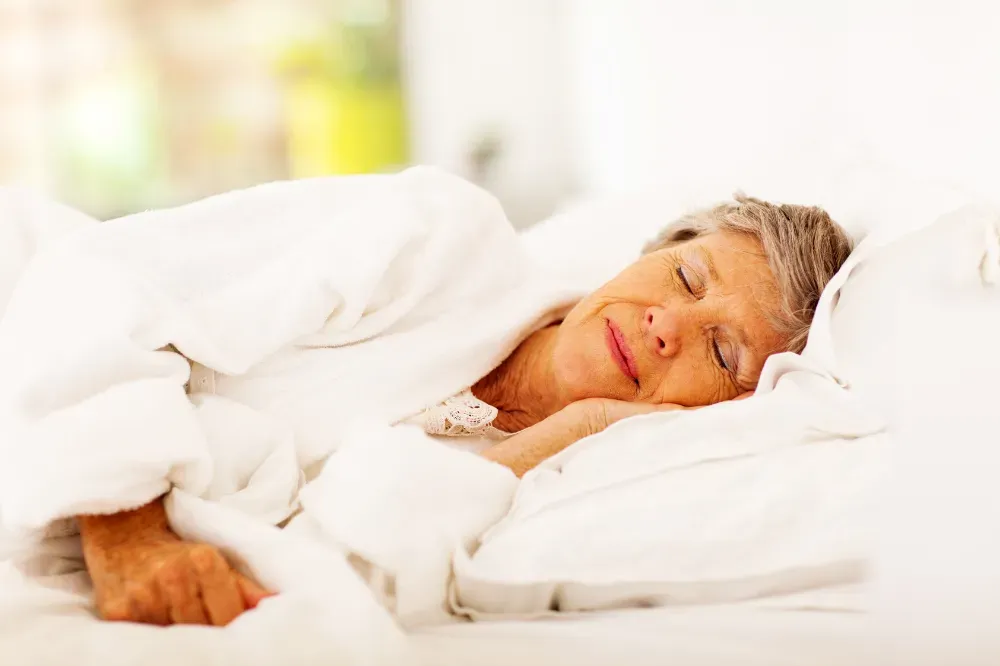
Tips for Better Sleep
Creating a relaxing bedtime routine, avoiding caffeine, and ensuring a comfortable sleeping environment can help improve sleep quality. Addressing sleep problems is a critical part of self-care for seniors.

Conclusion
Self-care strategies for seniors are essential for maintaining mental and emotional well-being. By incorporating relaxation techniques, meditation, and self-reflection practices into their daily routine, older adults can enhance their quality of life and enjoy a healthier, more fulfilling retirement. Emphasizing the importance of physical activity, healthy eating, social connections, and adequate sleep can help seniors achieve overall wellness and promote a positive outlook on life.
